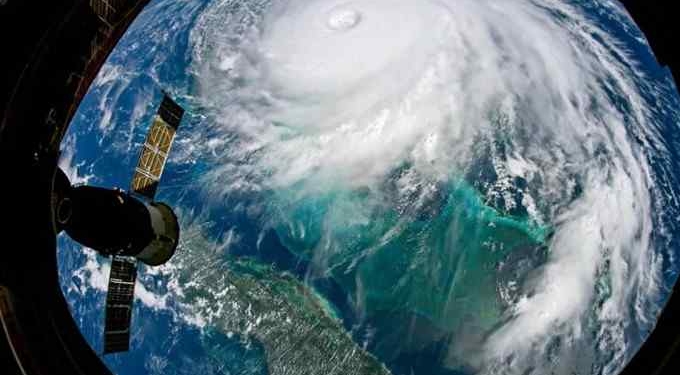
By Olivia Rosane | Ecowatch
2019 marked the fourth year in a row that the Atlantic hurricane season saw above-average activity, and it doesn't look like 2020 will provide any relief.
The 2020 season is expected to generate 14 to 18 tropical storms, of which seven to nine will become hurricanes and two to four will develop into major hurricanes, AccuWeather predicted Thursday.
“It's going to be an above-normal season,” leading AccuWeather hurricane expert Dan Kottlowski said. “On a normal year, we have around 12 storms, six hurricanes and roughly three major hurricanes.”
2019 tied with 1969 as the fourth most active hurricane season on record. Storms last year included Hurricane Dorian, which devastated the Bahamas, and Tropical Storm Imelda, which caused widespread flooding in Houston. Overall, last year's season saw 18 storms that caused more than $11 billion in damage.
Hurricane season usually lasts from June 1 to Nov. 30, and Kottlowski advised anyone living in a potentially impacted area to be prepared:
“Forecasts will give you an idea of how active it might be, but all it takes is one storm to make landfall in your area to cause serious and life-threatening problems,” Kottlowski said.
“Go back to last year with Dorian and Imelda,” he added. “Those were two very, very high-impact storms,” he said. “This year, more than likely, we'll get hit with one or two big storms and we don't know specifically where that is, so if you live near a coast or on an island, have a hurricane plan in place.”
There is little evidence that the climate crisis is impacting hurricane frequency, according to Yale Climate Connections. Since 1985, a relatively stable average of around 80 tropical cyclones have formed each year.
What the climate crisis does do is make hurricanes more dangerous by raising ocean temperatures, which fuel storms that are wetter, more intense and more likely to intensify rapidly.
















